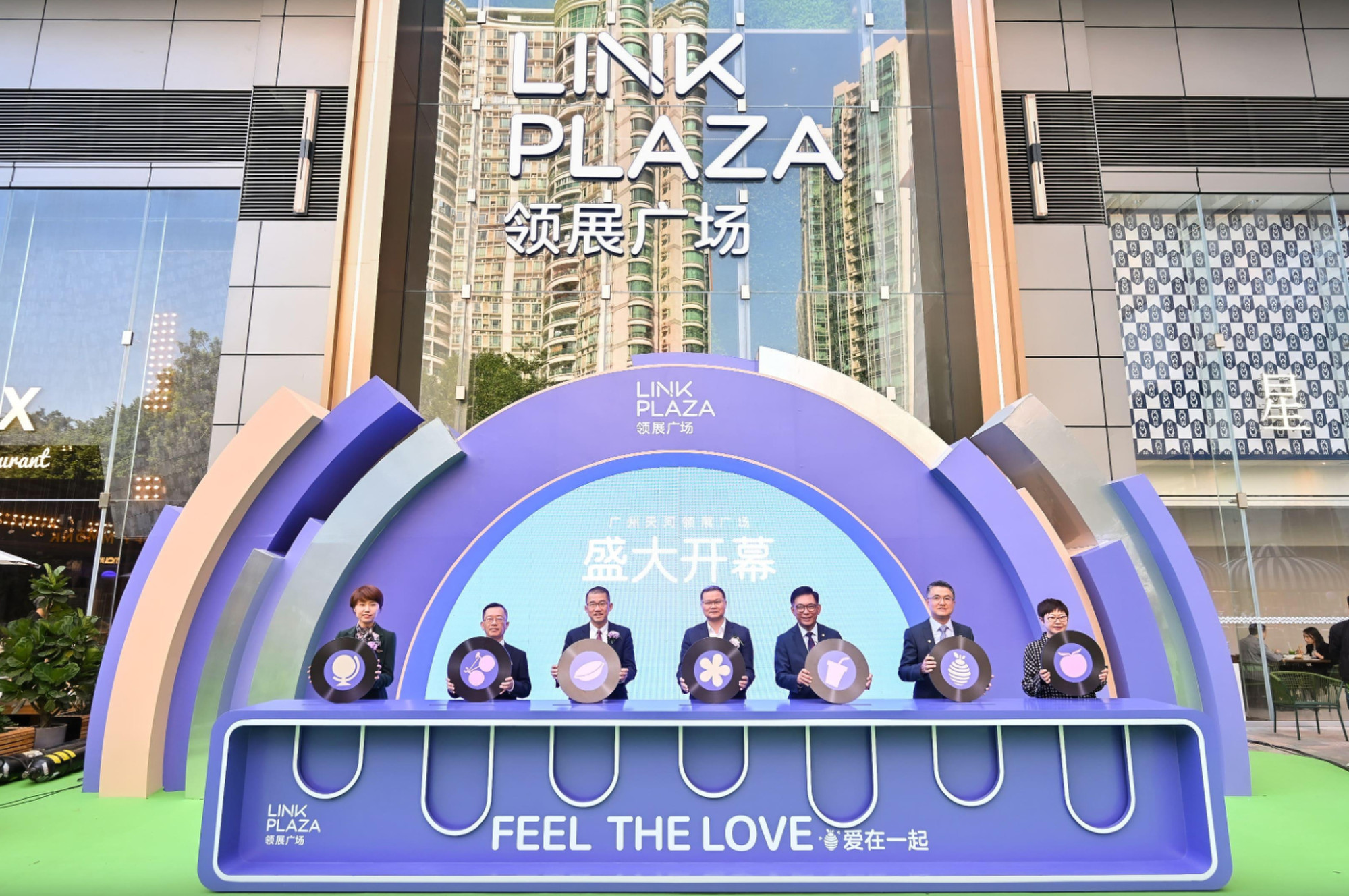Link Reit, Asia’s largest real estate investment trust, has opened a renovated shopping mall in Guangzhou, a clear indication of its focus on mainland China, with a top executive firmly rejecting rumours of asset sales despite the prolonged economic recovery.
The Hong Kong-listed Reit acquired the shopping mall, located in the southern Chinese city’s core business district of Tianhe, for 3.2 billion yuan (US$451 million) in June 2021.
Renamed Link Plaza Tianhe, the shopping mall covers over 90,000 square metres with 1,000 car-parking spaces and 160 tenants. It is Link Reit’s sixth investment in mainland China and the fourth in the Greater Bay Area.
The bay area is a core focus area for Link Reit, said executive director and CEO George Hongchoy Kwok-lung. The company other mall in Shenzhen’s Futian district has witnessed high traffic during weekends, boosted by a considerable contribution from Hong Kong residents, he added.

Hongchoy also denied rumours that the company plans to sell a set of seven mainland assets, more than half of its portfolio on the mainland. He said there was no basis to the rumours, and added that Link Reit was always eyeing assets in China and elsewhere.
The company, which manages a diversified portfolio from retail to logistics facilities across the world, has 12 assets in mainland China, including five malls in Beijing, Shenzhen and Guangzhou, and a 50 per cent owned project in Shanghai.
Harvey Nichols to leave Landmark mall in Hong Kong’s Central after 18 years
Harvey Nichols to leave Landmark mall in Hong Kong’s Central after 18 years
Link Plaza Tianhe’s renovation, undertaken at a cost of about 300 million yuan, was completed in September, exactly a year after work started, Link Reit said. The mall now has an occupancy rate of more than 95 per cent, with sales rising 30 per cent in October from September. The return on investment currently stands at 12 per cent, the company added.
Link Reit’s two other assets in Guangzhou and Shenzhen are seeing healthy growth, said Zhu Haiqun, the mainland China managing director. He too said the company was constantly on the lookout for favourable assets in the Greater Bay Area.
Earlier this month, Link Reit reported a 95.8 per cent portfolio occupancy rate in mainland China for the six months ended September.
Consumption remains a bright spot for an otherwise lacklustre economy. The latest data shows China’s retail sales grew by 7.6 per cent year on year in October, compared with 5.5 per cent growth in September.
“In the midst of retail recovery in mainland China, which is steady and ongoing, footfall and gross sales per square foot in our retail portfolio have displayed solid growth, surpassing pre-Covid levels,” Link Reit said.

The opening of Link Reit’s mall comes after a boom in the first few months of the year, with China’s retail property segment remaining flat in the third quarter.
The retail vacancy rate in the third quarter fell by 0.2 percentage points from the previous three-month period, according to data compiled by CBRE. Average rents broadly remained stable, with Beijing, Shanghai and major tier-2 cities registering slight gains, the data showed.
An additional supply of 1.71 million sq m of retail space was added nationwide in the third quarter, similar to the previous quarter, while the net absorption rose to 91 per cent to 1.7 million sq m, the highest in seven quarters, according to CBRE.
However, China’s retail property market still needs more time to be tested properly, as the momentum of recovery might soften amid a less than satisfactory consumption sentiment due to a sluggish economy, which can be challenging for the market, according to analysts.
Hong Kong retail rents set to see one of the highest increases in Asia
Hong Kong retail rents set to see one of the highest increases in Asia
The demand on the consumer side has been possibly affected by economic effects, such as unemployment, or decline in income expectations, making consumers cut their expenses, said Jacky Zhu, head of retail research at JLL China.
“If there’s less consumer spending, it will greatly impact offline shopping and lead to a fall in revenue for some stores, making it unable for them to bear and force them to pull down the shutters,” Zhu said.
Meanwhile, the retail property market in 21 medium and large Chinese cities tracked by JLL is expected to see more than 4 million sq m of new space come to the market in the fourth quarter, but the launch of nearly one-fourth could be delayed, according to a report from JLL.
It will also weigh on rents and occupancy rates in those cities, JLL said.
“We are cautious about the retail property market in 2024, if there are no obvious supportive macroeconomic policies to shore up the consumption sentiment,” said Silvia Zeng, JLL’s head of research for southern China.

